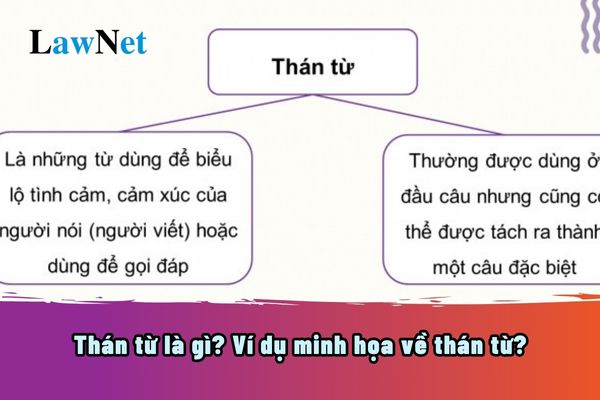What is the grade whose Literature curriculum covers interjections in Vietnam? What does interjection mean? Give examples of interjections
What does interjection mean? Give examples of interjections
Students may refer to the following information on interjections and illustrative examples of interjections:
|
What does interjection mean? Give examples of interjections In Literature, interjections are words used to directly express the emotions or feelings of the speaker or writer. They are often used to convey surprise, joy, sorrow, anger, regret, etc. Interjections usually stand-alone or are separated from the sentence by a comma or exclamation mark. |
*Note: Information is for reference only./.

What is the grade whose Literature curriculum covers interjections in Vietnam? What does interjection mean? Give examples of interjections (Image from the Internet)
What is the grade whose Literature curriculum covers interjections in Vietnam?
Under Section 5 of the general education program for Literature attached to Circular 32/2018/TT-BGDDT, the content of the 8th-grade Literature curriculum is as follows:
VIETNAMESE KNOWLEDGE
1.1. The meanings of some relatively common idioms and proverbs
1.2. The connotative meanings of words and the selection of words
1.3. Expressive and onomatopoeic words: characteristics and effects
1.4. The meanings of some common Sino-Vietnamese elements (e.g., vo, huu) and the meanings of words with those elements (e.g., vo tu, vo hinh, huu quan, huu han)
2.1. Particles, interjections: characteristics and functions
2.2. Independent components in a sentence: characteristics and functions
2.3. Declarative, interrogative, imperative, and exclamatory sentences; affirmative and negative sentences: characteristics and functions
3.1. Rhetorical devices, rhetorical questions: characteristics and effects
3.2. Explicit and implicit meanings of sentences
3.3. Types of paragraphs: deductive, inductive, parallel, hybrid: characteristics and functions
3.4. Text types and genres
- Narrative texts: an essay recounting a journey or social activity
- Expressive texts: six-syllable, seven-syllable poems; a paragraph recording feelings about a six or seven-syllable poem
- Argumentative texts: thesis, thesis point, reasoning and evidence; a discussion about a life issue; an analysis of a literary work
- Informative texts: objective information, subjective opinion and purpose of the text; explanatory texts to explain a natural phenomenon; a book introduction; a proposal document
4.1. National and regional vocabulary: functions and values
4.2. Social dialects: functions and values
4.3. Non-verbal communication means: images, figures, charts,...
Thus, according to the regulations, interjections will be part of the content of the 8th-grade Literature curriculum.
What literary knowledge does the 8th-grade Literature curriculum in Vietnam cover?
Under Section 5 of the general education program for Literature attached to Circular 32/2018/TT-BGDDT, the 8th-grade Literature curriculum in Vietnam covers the following literary knowledge:
- Imagination in literary works
- Title and how to title a text
- Theme and subject, how to determine the theme; structure
- Plot, setting, character, language in comedies, historical stories
- Single-threaded plot and multi-threaded plot
- Main artistic techniques of satirical poetry
- Some metrical laws of the seven-syllable, eight-line poem and the quatrain poem of Tang Dynasty poetry: composition, rhyme scheme, meter, rhyme, rhythm, antithesis
- Some formal elements of a poem: words, images, composition, emotional flow
- Conflict, action, character, dialogue, and satirical techniques in literary scripts (comedic plays)
- Some formal elements of free verse (six, seven syllables): number of lines, words, rhyme, rhythm
- The reader and their unique reception of a literary text
- The reflection of the content and the author's perspective on life and people

